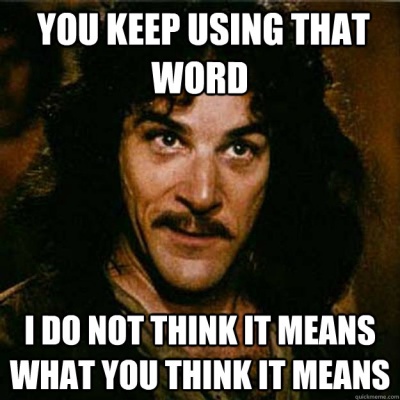
The business world is rife with buzzwords that make a lot of noise without actually saying much. “You want to sound like a person, not an institution,” writes Brian A. Garner for the Harvard Business Review blog. “But it’s hard to do, especially if you work with people who are addicted to buzzwords.”
On his list of 65 forbidden buzzwords impactful is not a word at all, according to strict grammarians.
But is it really true? Let’s find out.
Is Impactful a Word? The Key Takeaways
Yes, it is a real word! In the 1960s, the term “impactful” began to be used to describe something with a significant effect or influence.
However, this word has faced criticism for being considered unnecessary and awkwardly constructed.
Despite being a recognized word, ‘impactful’ can be a source of irritation for some readers. Alternatives like ‘influential’, ‘powerful’, or ‘effective’ might be preferable choices.
The debate around the word raises a broader question: are all words in the dictionary perceived equally?
The case of ‘impactful’ highlights how certain words can attract criticism and skepticism, inviting us to ponder whether such judgments are justified.
What Does Impactful Mean?
Though the word does not yet appear in reputable print dictionaries, it is defined by Merriam-Webster’s online dictionary as “having the power to affect the feelings or sympathies.”
Google’s definition is slightly different: “having a major impact or effect. ‘an eye-catching and impactful design’”
Sometime in the early to mid-1960s, judging by the usage graph provided by Google, someone thought to make the noun “impact” into an adjective by tacking on “-ful.”
It seems intuitive – after all, that’s how we get “beautiful” and “powerful” – but the impactful meaning continues to be hotly contested by English professors and casual language enthusiasts.
What’s the Debate? The War Between Grammar Enthusiasts
Dictionary.com supports “impactful” with a surprisingly snarky usage note: “Impactful is one of those words that somehow arouse intense disdain, especially among editors and other would-be guardians of English.”
Those would-be guardians include blogger The Sassy Librarian, who calls her fellow prescriptivists to arms, writing, “People, let us not reward other’s ignorance by allowing these words to be included in our language. Let’s make people work for the language in order to truly understand word meanings and nuances.”
According to The Grammarist, “The main gripe is that impactful is illogical because the suffix –ful means full of, and impact is not a quantity and hence can’t fill anything.”
However, the entry on this tricky topic goes on to explain that “-ful also means having the quality of, and…impact bears the secondary sense the power to make an impression, and such power can be a quantity.”
Grammarly, the world’s leading automated proofreader, gives “impactful” a pass, as does Microsoft Word’s built-in spell check. However, the spell check feature built in to browsers such as Google Chrome and Firefox still highlight it as misspelled.
Anne Curzan notes in this piece from The Chronicle of Higher Education that “impactful” is on the rise, a fact she regards with distaste.
She, like a small but vocal contingent of online commentators, finds the word to be offensive to the ear. According to her research, the word appears eight times more frequently in published works between 2010-2012 than it did in the years 1990-1994.
While Curzan is resigned to the rise of “impactful,” others will not go gently into that good night. John McIntyre of The Baltimore Sun insisted that the word “could be used in direct quotes, if the writer insists on it, but not otherwise in the paper.”
Here’s the thing:
In the classic 1987 fantasy film The Princess Bride, one of the characters, played by Wallace Shawn, constantly says “Inconceivable!”
Finally, Inigo Montoya (Mandy Patankin) quips, “You keep using that word. I do not think it means what you think it means.” For better or worse, if we keep using “impactful,” eventually it will mean what we say it does.
As Curzan noted, “I can choose not to use it, but even that will probably be short-lived; give me another couple of years and I will probably have gotten the hang of impactful and may not even notice it anymore.”
That’s the beauty (or, if you’re a stickler, the curse) of a living language.
What Should You Do? 15 Impactful Synonyms
If you think “impactful” is a useful addition to the language, then you’re not alone. If you find that “impactful” is the lexical equivalent of chewing tinfoil, however, just don’t use it.
Here are 15 words to use instead of impactful:
- Powerful
- Impressive
- Effective
- Influential
- Potent
- Persuasive
- Compelling
- Significant
- Forceful
- Convincing
- Meaningful
- Pivotal
- Consequential
- Transformative
- Momentous